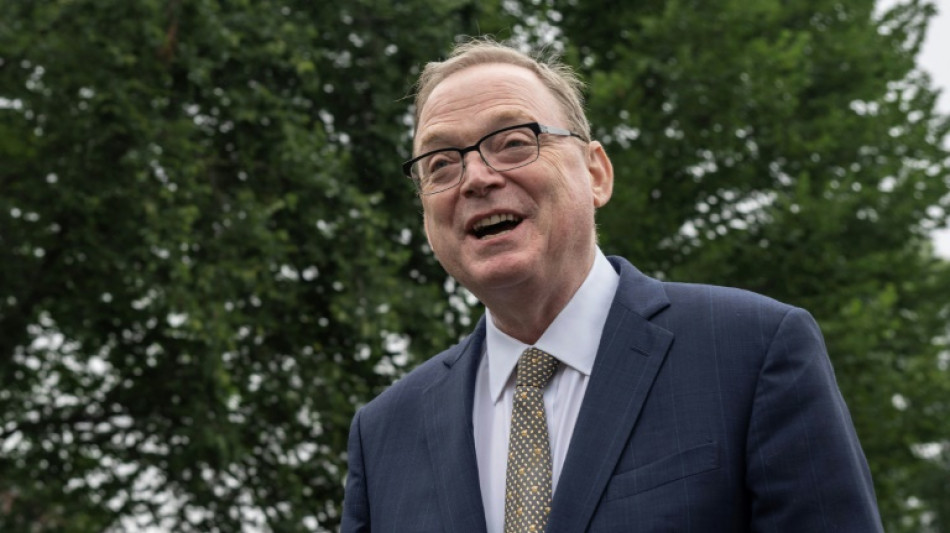
-
 Brazil without Neymar and Vinicius as Paqueta back for World Cup qualifiers
Brazil without Neymar and Vinicius as Paqueta back for World Cup qualifiers
-
Tennis history for Hong Kong as Wong reaches US Open 2nd rd

-
 Rapper Lil Nas X charged after naked nighttime stroll in LA
Rapper Lil Nas X charged after naked nighttime stroll in LA
-
US judge temporarily blocks deportation of Salvadoran man in immigration row

-
 US captain Bradley eyes picking himself to play in Ryder Cup
US captain Bradley eyes picking himself to play in Ryder Cup
-
Sixth seed Keys upset by Zarazua at US Open

-
 New school year in Washington marked by fear of anti-migrant raids
New school year in Washington marked by fear of anti-migrant raids
-
Trump says he wants to meet North Korea's Kim again
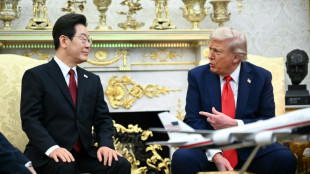
-
 Alcaraz makes US Open bow, Venus Williams returns
Alcaraz makes US Open bow, Venus Williams returns
-
US backs ambassador to France in antisemitism row
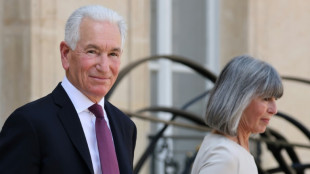
-
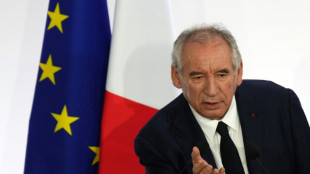 French PM's job on line with call for confidence vote
French PM's job on line with call for confidence vote
-
Polish president blocks law extending Ukrainian refugees' rights
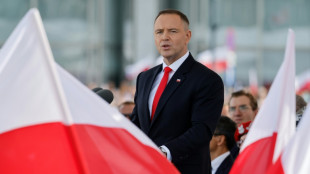
-
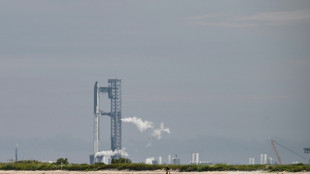 SpaceX megarocket prepares for next launch amid new scrutiny
SpaceX megarocket prepares for next launch amid new scrutiny
-
Trump eyes N.Korea meet as he ambushes S.Korea leader
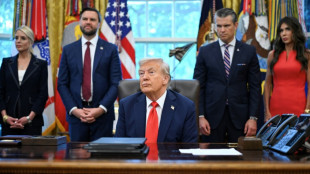
-
 Medvedev 'needs help' after US Open meltdown: Becker
Medvedev 'needs help' after US Open meltdown: Becker
-
Shi hopes 'new image' will help break his badminton worlds hoodoo

-
 Gaudu pulls away from Vingegaard to take Vuelta stage
Gaudu pulls away from Vingegaard to take Vuelta stage
-
Musk's xAI sues Apple, OpenAI alleging antitrust violations
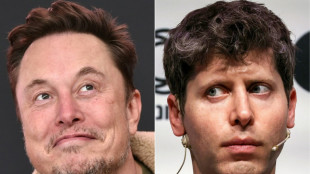
-
 Top UK screenwriter Laverty arrested at pro-Palestine protest
Top UK screenwriter Laverty arrested at pro-Palestine protest
-
US studio unearths fossilized dinosaur game 'Turok'

-
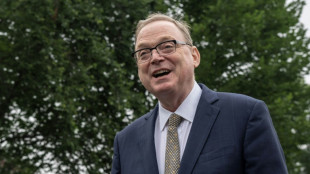 Trump advisor says US may take stakes in other firms after Intel
Trump advisor says US may take stakes in other firms after Intel
-
Russia holds secretive espionage hearing against French researcher

-
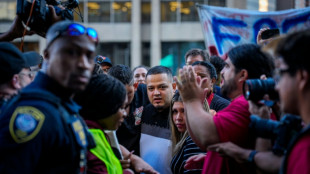 Salvadoran man in Trump immigration row to be deported to Uganda: officials
Salvadoran man in Trump immigration row to be deported to Uganda: officials
-
Typhoon Kajiki lashes Vietnam, killing one as thousands evacuate

-
 Bologna new boy Immobile out for eight weeks with thigh injury
Bologna new boy Immobile out for eight weeks with thigh injury
-
Polish president blocks law to extend social welfare to Ukrainian refugees
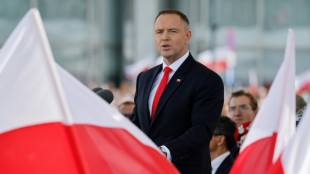
-
 Five journalists among 20 killed in Israeli strikes on Gaza hospital
Five journalists among 20 killed in Israeli strikes on Gaza hospital
-
Salvadoran man at center of Trump immigration row detained again
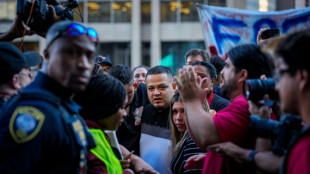
-
 Five journalists among 20 killed in Israeli strikes on Gaza hospital: civil defence
Five journalists among 20 killed in Israeli strikes on Gaza hospital: civil defence
-
Telegram's Durov blasts French probe one year after arrest

-
 African players in Europe: Another historic goal for Ndiaye
African players in Europe: Another historic goal for Ndiaye
-
Amorim warns Mainoo he must fight for his Manchester United place

-
 Portugal counts the cost of its biggest ever forest fire
Portugal counts the cost of its biggest ever forest fire
-
Russia to hold espionage hearing against French researcher
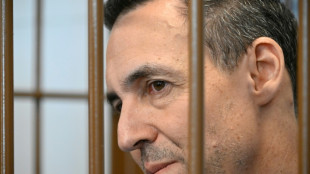
-
 Rooney forecasts 'massive future' for Arsenal teen sensation Dowman
Rooney forecasts 'massive future' for Arsenal teen sensation Dowman
-
Four journalists among 15 killed in Israeli strikes on Gaza hospital: civil defence

-
 India cricket ends $43.6 mn sponsorship after online gambling ban: report
India cricket ends $43.6 mn sponsorship after online gambling ban: report
-
France's sole Paris Olympics athletics medallist Samba-Mayela to miss worlds

-
 Springboks recall Jasper Wiese, but brother Cobus misses out
Springboks recall Jasper Wiese, but brother Cobus misses out
-
Asian markets rally on US rate cut hopes
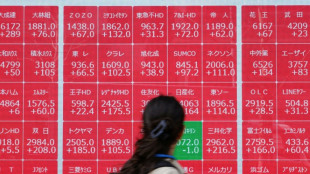
-
 Zanele Muholi, S.African photographer reclaiming identity
Zanele Muholi, S.African photographer reclaiming identity
-
'Restoring dignity': Kenya slum exchange offers water for plastic

-
 Sabalenka, Djokovic into US Open round two as fuming Medvedev exits
Sabalenka, Djokovic into US Open round two as fuming Medvedev exits
-
Human ancestor Lucy gets first European showing in Prague

-
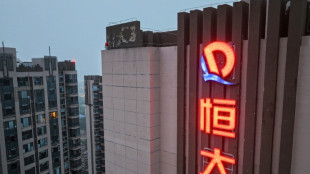 China Evergrande Group delisted from Hong Kong stock exchange
China Evergrande Group delisted from Hong Kong stock exchange
-
A healer and a fighter: The double life of UFC star Shi Ming

-
 US Open chaos as Bonzi ousts raging Medvedev
US Open chaos as Bonzi ousts raging Medvedev
-
Bleak future for Rohingya, as Bangladesh seeks to tackle crisis

-
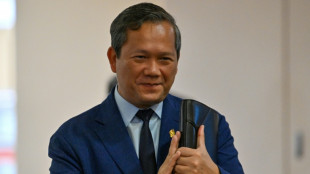 Cambodia MPs pass law allowing stripping of citizenship
Cambodia MPs pass law allowing stripping of citizenship
-
What to look for at the Venice Film Festival


Trump advisor says US may take stakes in other firms after Intel
The US government could take stakes in other companies after doing so with chipmaker Intel, President Donald Trump's top economic advisor Kevin Hassett said Monday.
Hassett, director of the National Economic Council, cited Trump's plans for a sovereign wealth fund in a CNBC interview, saying "I'm sure that at some point there'll be more transactions" in the semiconductor industry or others.
He was responding to a question on whether a recently announced deal for the US government to take a 10-percent equity stake in Intel was the start of broader efforts towards similar moves in other industries that authorities have been funding.
Under the agreement with Intel, the US government will receive 433.3 million shares of common stock, representing a 9.9-percent stake in the company, Intel said in an earlier statement.
This amounts to an $8.9 billion investment, funded partially by $5.7 billion in grants awarded but not yet paid under the CHIPS and Science Act -- a major law passed under former president Joe Biden, which Trump has criticized. The other portion comes from a different award.
Hassett said on Monday that "in the past, the federal government has been giving money away" to companies.
But he maintained that under potential deals like that with Intel, "these are going to be shares that don't have voting rights."
He said the US government plans to stay out of how companies are run.
- Company risks -
Intel warned in a securities filing on Monday, however, that the government's equity stake could limit its ability to secure grants from government entities in the future -- among other risks.
It noted that the timing it would receive the funding, alongside its ability to fulfil conditions for the funds, "remain uncertain."
Intel additionally noted that its international business could be "adversely impacted" by the US government being a significant shareholder.
Critics of the deal warn it could be bad for the company's viability if politics are seen as driving business decisions.
In February, shortly after Trump returned to the presidency, the White House published a plan for the world's biggest economy to set up a sovereign wealth fund.
A sovereign wealth fund is a state-owned investment fund that manages a country's excess reserves, typically derived from natural resource revenues or trade surpluses, to generate long-term returns.
For now, Hassett noted that the specific deal with Intel came out of "a very, very special circumstance because of the massive amount of CHIPS act spending that was coming Intel's way."
bys/des
The US government could take stakes in other companies after doing so with chipmaker Intel, President Donald Trump's top economic advisor Kevin Hassett said Monday.
Hassett, director of the National Economic Council, cited Trump's plans for a sovereign wealth fund in a CNBC interview, saying "I'm sure that at some point there'll be more transactions" in the semiconductor industry or others.
He was responding to a question on whether a recently announced deal for the US government to take a 10-percent equity stake in Intel was the start of broader efforts towards similar moves in other industries that authorities have been funding.
Under the agreement with Intel, the US government will receive 433.3 million shares of common stock, representing a 9.9-percent stake in the company, Intel said in an earlier statement.
This amounts to an $8.9 billion investment, funded partially by $5.7 billion in grants awarded but not yet paid under the CHIPS and Science Act -- a major law passed under former president Joe Biden, which Trump has criticized. The other portion comes from a different award.
Hassett said on Monday that "in the past, the federal government has been giving money away" to companies.
But he maintained that under potential deals like that with Intel, "these are going to be shares that don't have voting rights."
He said the US government plans to stay out of how companies are run.
- Company risks -
Intel warned in a securities filing on Monday, however, that the government's equity stake could limit its ability to secure grants from government entities in the future -- among other risks.
It noted that the timing it would receive the funding, alongside its ability to fulfil conditions for the funds, "remain uncertain."
Intel additionally noted that its international business could be "adversely impacted" by the US government being a significant shareholder.
Critics of the deal warn it could be bad for the company's viability if politics are seen as driving business decisions.
In February, shortly after Trump returned to the presidency, the White House published a plan for the world's biggest economy to set up a sovereign wealth fund.
A sovereign wealth fund is a state-owned investment fund that manages a country's excess reserves, typically derived from natural resource revenues or trade surpluses, to generate long-term returns.
For now, Hassett noted that the specific deal with Intel came out of "a very, very special circumstance because of the massive amount of CHIPS act spending that was coming Intel's way."
O.M.Souza--AMWN